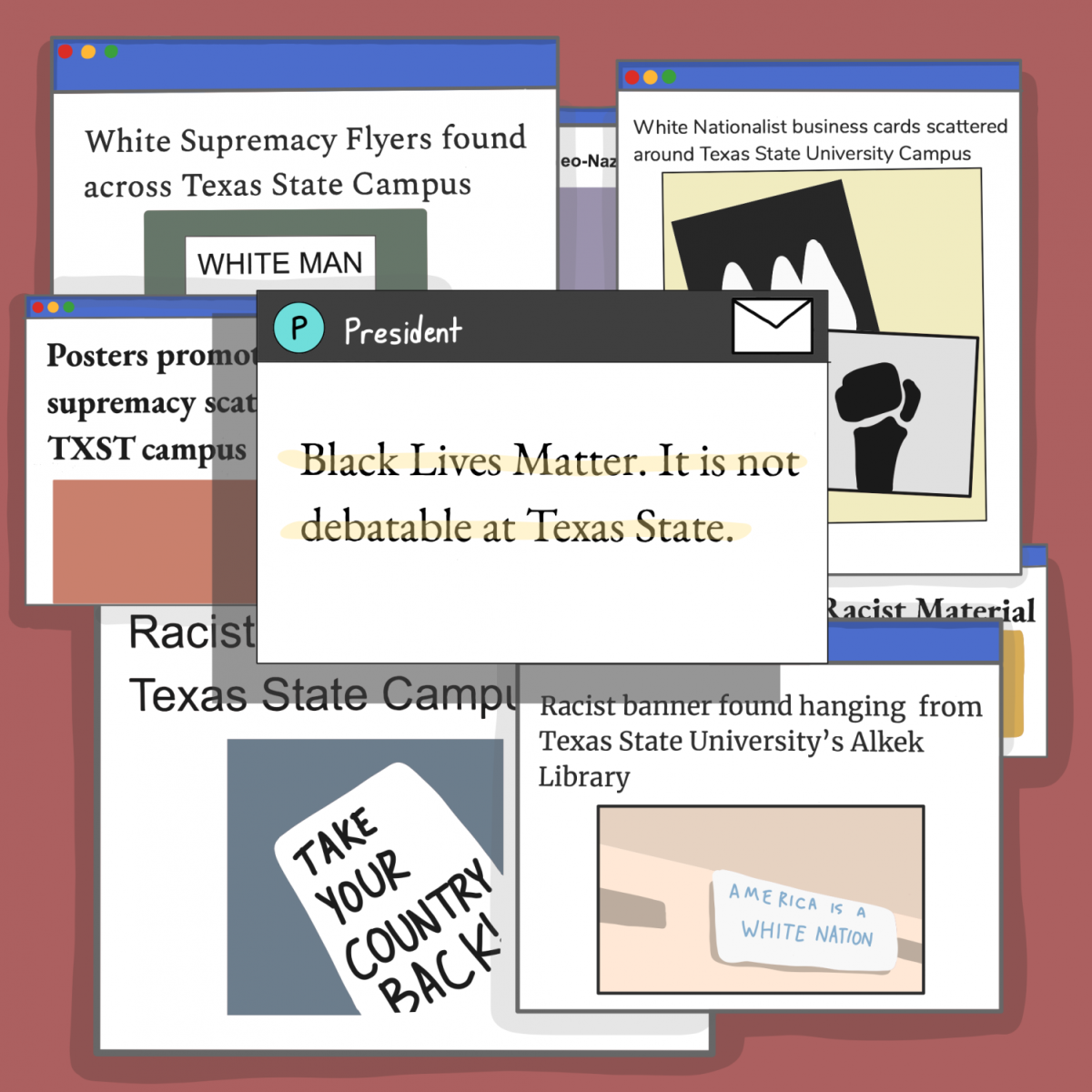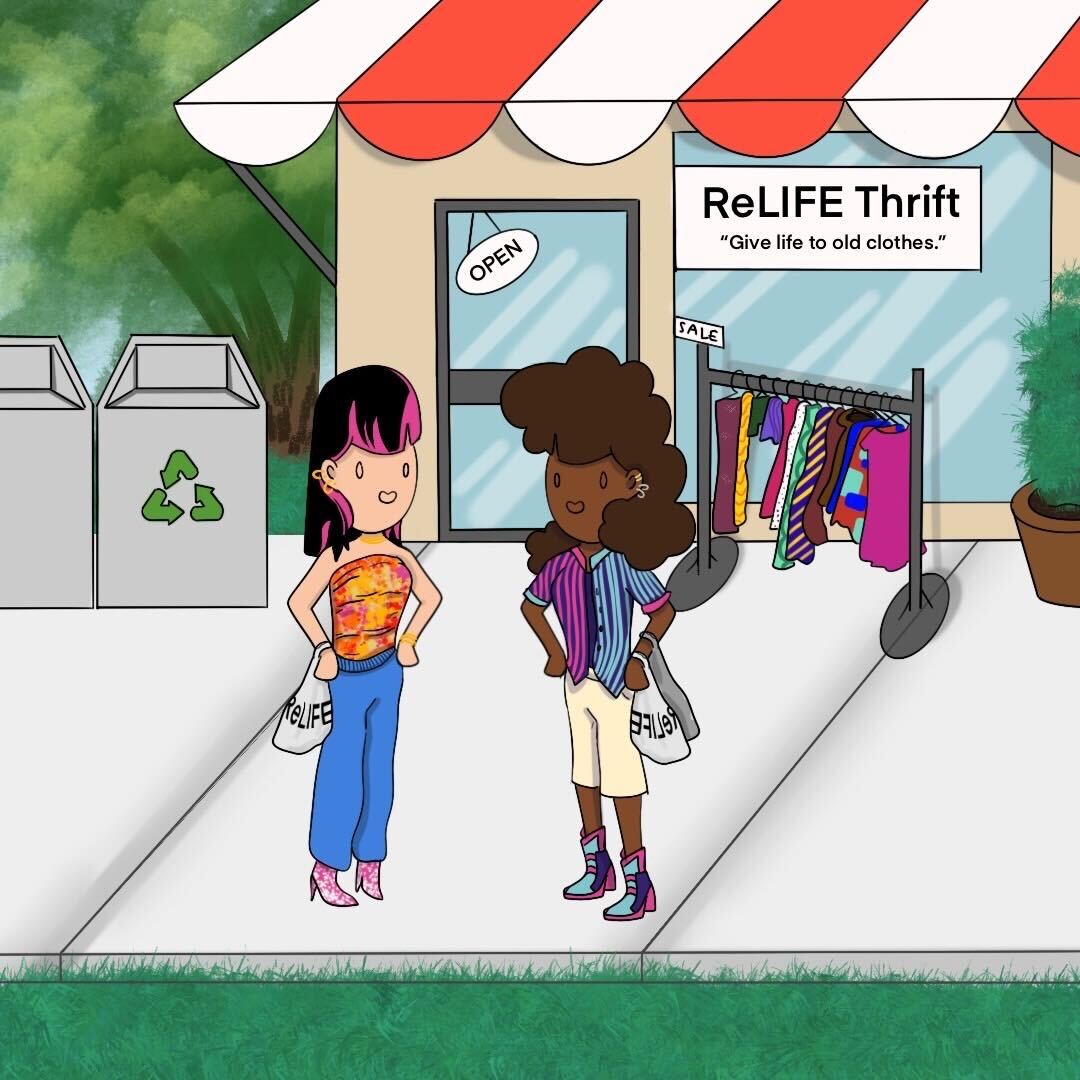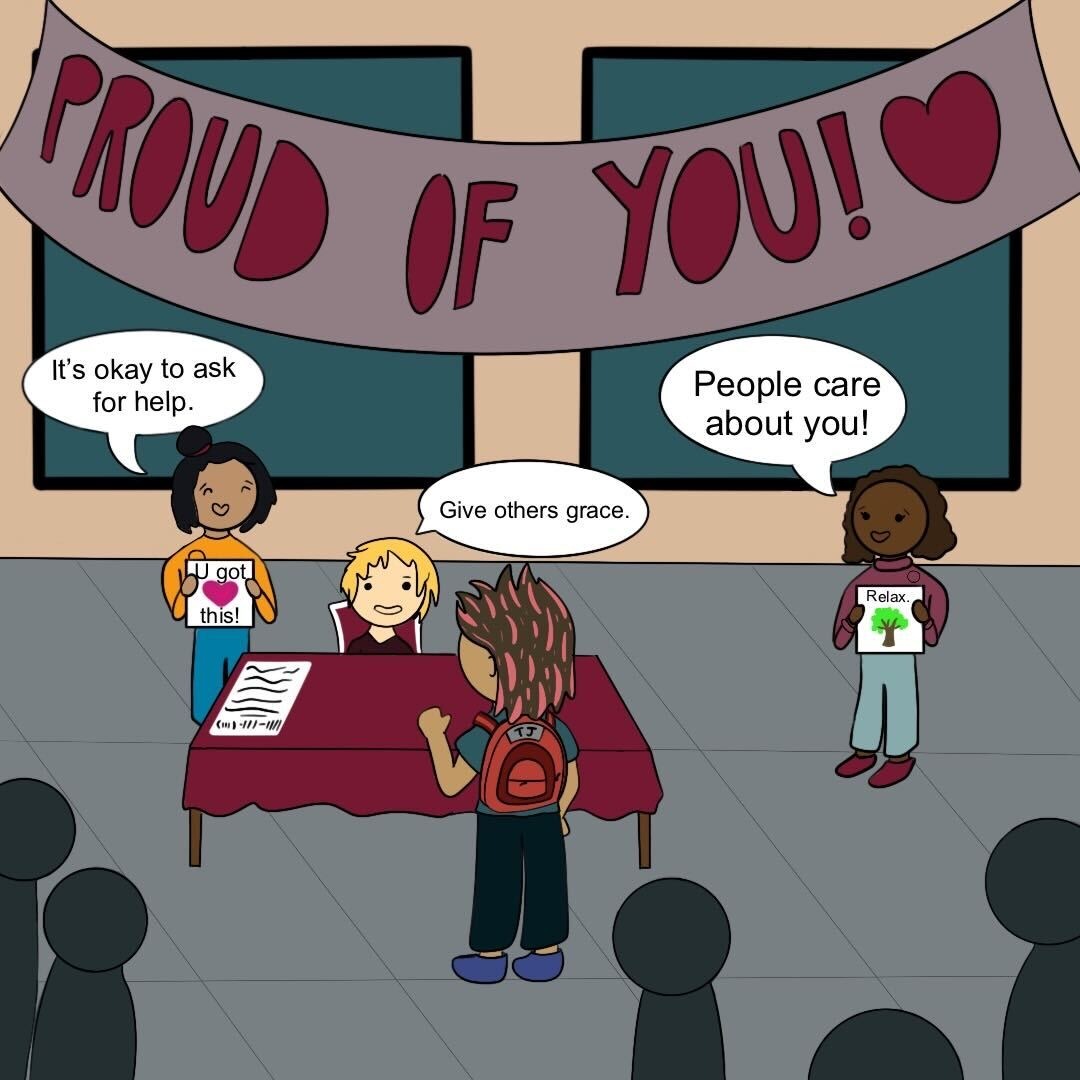In light of protests taking place across the nation and news that a student of our own was a victim of police brutality, Texas State President Denise Trauth sent the student body and faculty a statement where she wrote, “Black Lives Matter. It is not debatable at Texas State.” The second part of her statement, although endearing, is false.
Black lives do matter, but allyship for Black students at Texas State is heavily debatable. History does not lie. For years, the university has not made it clear which side it stands on.
Looking back to Oct. 2017, white supremacy fliers were found across campus and a banner that read “America is a White Nation” was hung on Alkek Library. Trauth released a similar statement then, saying, “there is no place for hate at our university.” However, stickers depicting a white supremacist organization resurfaced around campus earlier this year in March.
Trauth can condemn it all she wants, but at the end of the day, her words need to be backed up by action. Otherwise, she is seemingly enabling racism at Texas State.
In Feb. 2018, students and alumni gathered on the Quad to protest for the impeachment of then Student Body President Connor Clegg after racist and sexist posts were found on his social media. The Clegg impeachment controversy brought on a march, sit-in and debate over a boycott to Texas State because Black students felt the administration did not serve in the interest of minorities.
When the administration cannot be trusted, one would assume the university police department could bring comfort to the student body and provide reasonable safety; however, past incidents have indicated they are more interested in managing student voices rather than prioritizing their well being.
During an on-campus protest on May 1, 2019, UPD arrested four students of color, using what seems like a convenient excuse that a “heated discussion….escalated into a physical altercation.”
The following day, Resistance TXST led a sit-in at the LBJ Student Center demanding UPD be trained in de-escalation tactics and how to recognize and overcome biases regarding minority students. It is obvious that Black students have to continuously fight for a chance to be heard, by organizing sit-ins, on-campus protests or online petitions.
Black Students did not feel represented years ago, and they do not feel represented now. The university says it is committed to diversity and inclusion but its actions, or lack thereof, say otherwise.
Recent events have proven that even faculty and staff cannot always be trusted, as Texas State staff member Stacia Brassell is no longer with the university after commenting a racial slur during a Facebook live stream showing a protest for black lives. On May 30, alumnae of the Texas State Strutters went to social media and called for change within the organization, saying there is clear discrimination against Black women on the team.
A few days later, on June 4, Jaylen Shead, a former Texas State basketball player, went to social media and alleged current men’s basketball coach Danny Kaspar was racially insensitive throughout his entire experience on the team. Another former player, Alex Peacock, publicly agreed with Shead’s statements, and after a grueling 15 hours, the athletic department put out a statement saying they found the allegations “deeply troubling” and “launched an investigation.”
True or not, these allegations make it clear that not all Black students feel comfortable at Texas State. And if the administration, faculty and staff have all failed to represent them, who can the student body trust? Until fundamental changes are made, not anyone at Texas State.
The reality is institutional racism is not something that can be changed overnight. Texas State can become an ally to the Black Lives Matter movement, but to say “it is not debatable” is an untrue statement. There is still work to be done.
The university’s A Day of Reflection and Solidarity June 19 is not enough. Students are tired of performative actions. They want tangible solutions at Texas State, and the administration must do everything in its power to make sure that happens.
Multiple protests have taken place in San Marcos, and the administration nor UPD, outside of a “unity march” on behalf of the athletic department, have not shown up. A true ally makes its support clear; Texas State has been everything but clear.
The university should stop sending weak emails of disapproval, claiming racist behavior will not be tolerated on campus when it clearly has been in the past. Instead, it should acknowledge its troubled past and outline step-by-step what the administration is doing to change it.
Whether or not that consists of vastly improving its efforts toward hiring more diverse administration and faculty members, implementing a more thorough hiring process to weed out ‘bad apples’ or speaking up and protesting with students when injustice takes place on or near campus, remains to be seen.
While it is important to listen, it is just as important to act. Trauth and the university can stick with writing half-hearted emails trying to convince Black students they are cared for, or they can listen and think of an appropriate way to act going forward.
Trauth needs a wake-up call, and here it is: allyship is, undeniably, debatable at Texas State. There is no question about it.
-Laura Nunez is an advertising senior
-Amira Van Leeuwen is a journalism sophomore who contributed to this opinion
Opinion: Sorry Trauth, allyship from Texas State is very debatable
June 10, 2020
An illustration of several open computer windows. Each window displays headlines about incidents involving white supremacists on the Texas State campus except for one that depicts an email from President Trauth about the Black Lives Matter movement
0
Donate to The University Star
Your donation will support the student journalists of Texas State University. Your contribution will allow us to purchase equipment and cover our annual website hosting costs.
More to Discover











